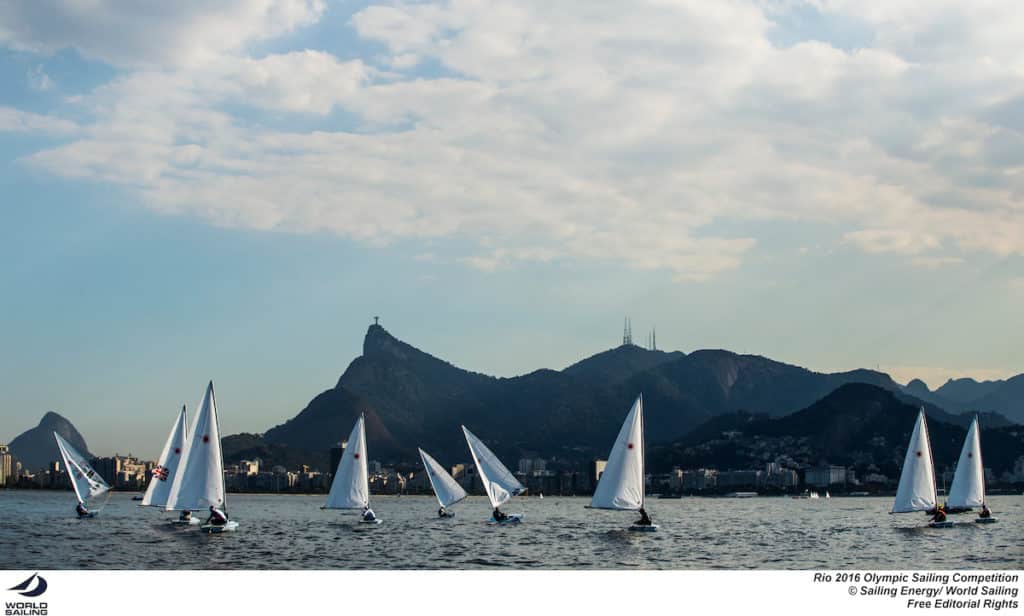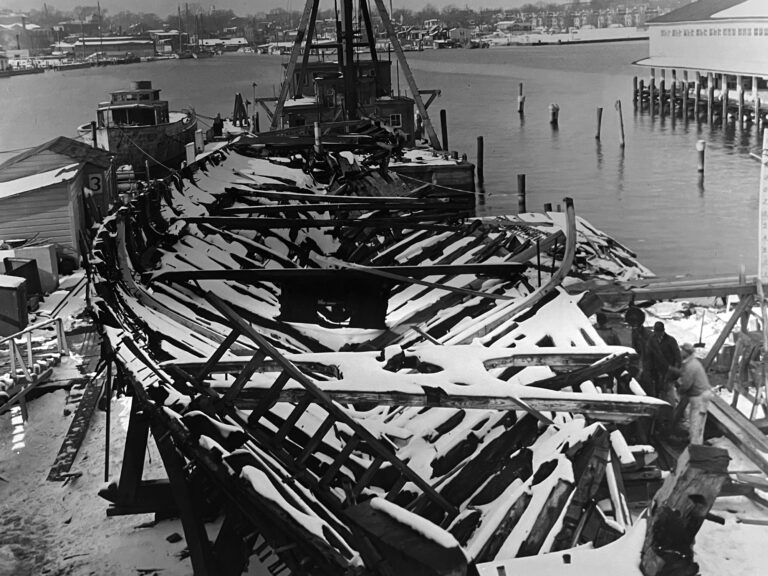
The Rio 2016 Olympic Sailing Competition
With three days to go before the start of the Olympic Regatta and the opening ceremony tonight, the media presence at the Marina da Gloria in Rio de Janeiro is growing, as is the frequency that supporters and members of the media question the sailors on their perception of the water quality in the bay. The athletes’ canned responses and restraint in rolling their eyes are evidence of an over-exhausted topic; we get it, the water in Rio is dirty.
It’s a two-pronged issue: trash and pathogens. They cause separate problems for the sailors, as stopping due to trash will ruin a single race, and the pathogens are potential Game-enders. These threats, however large, have failed to keep any sailors from competing in the Games so far. Continuing to harp on the dirty water is detrimental to the experience of sailors who have worked for years to compete in Rio. None of the sailors currently practicing in the bay are ill from the water — they’re just sick of the question.
“It is an issue, no doubt about it. But it’s not something that we’re preoccupied about to be honest,” says Australian Sailing’s Team Leader Peter Conde of the water quality. As long as the pollution continues to have no effect on the competition, the topic is moot.
“The only way to have a fair regatta is for all of the sailors to be able to compete,” says German Laser sailor Philip Buhl. “Right now, no one is sitting out because they are sick, so the sailing is fair.”
“Frankly, it’s frustrating because sailing is getting more attention than usual and it’s for something like water quality,” says Canadian Laser Radial sailor Brenda Bowskill. “There’s hype every Olympics around something, this time it just happens to be the water. The water is dirty, you can’t get past that, but there’s so much more to sailing that the public should be focusing on.”
For Bowskill, she sees the focus on the water quality as a lost opportunity for a larger audience to engage with sailing. “It’s taking away from the sport and it’s taking away from the athletes who have worked for four or eight years-plus to get here,” she says. “It’s bringing us a lot of attention, but unfortunately it’s negative. Hopefully the media and the public can get past that.” Bowskill hopes that once the racing starts the excitement will fully turn to the competition.
All of the teams know the pollution and pathogens are a factor, and most have put procedures in place to minimize the risk, including disinfecting gear and personal hygiene procedures.
“We make sure our kit is washed properly, we don’t use bottles that have been sitting in the bilge, and make sure we have plenty of hand foam and mouthwash and whatever else we need,” says British Finn sailor Giles Scott. “I don’t think about it when I’m on the water, I don’t think about it before I go out. It’s part of our team routine we’ve put in place.”
For Giles Scott, it’s frustrating that the pollution has become a bigger story than the actual sailing. “We want the news to be about what we’re doing and how we’re doing it, not what we’re sailing in,” says Scott.
“We’re at the forefront of this city, and that’s what people should be focusing on,” says British Laser sailor Nick Thompson. “We have the most fantastic venue, we haven’t had this opportunity to be front and center since Sydney. That’s what the takeaway should be, not the fact that the water is a little dirty.”
British Sailing Team Leader Stephen Park says that he has witnessed individuals out on the water cleaning up the visible trash, and there have been efforts made to stem the flow of pollutants into the water. These activities will continue until the start of and through the regatta, and hopefully beyond. “Over the last 6 or 7 years we’ve been coming here, and the water quality has improved both from the efforts of locals and also bodies like World Sailing,” says Stephen Park, the British Sailing Team Leader.
If there’s anything that should be mentioned about the pollution, it is the legacy that the Olympics could leave on the issue of controlling dumping into Rio’s waters. “There’s a long way to go but we can’t underestimate the size and scale of the challenge that they’re facing,” says Park. “We hope to see that continue to improve, both in the coming days and in the long run.”
“I think people in Rio are more aware now that something needs to be done,” says Thompson. “For us, it’s about the Olympic competition. Nothing can be done at this point in regards to the rest of it. Hopefully the legacy that we leave here is positive.”









